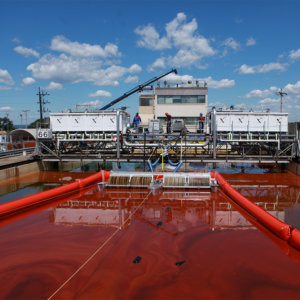A Little Competition Brings Out Astonishing Innovation
Contests can be big motivators for getting people to bring all their creativity to the table.
Topics
Leading Sustainable Organizations
Traditional ways of finding new ideas, such as investing in big R&D laboratories, are expensive. What’s more, they “often produce disappointing results,” write Alan MacCormack, Fiona Murray and Erika Wagner in the Fall 2013 issue of MIT Sloan Management Review.
What’s working for many companies now are contests — contests that present a company problem or challenge to the outside world, and that offer a wide variety of rewards for outsiders’ ideas. In fact, MacCormack, Murray and Wagner note, such contests often trigger major breakthrough ideas.
Take, for example, the Oil Cleanup X Challenge.
In their article “Spurring Innovation Through Competitions,” MacCormack, Murray and Wagner explain that the Oil Cleanup X Challenge is an example of how an organization can generate new solutions to a known problem.
The contest offered a $1.4 million prize in 2011 for the most effective product to recover oil from the surface of the sea. It was sponsored by Wendy Schmidt, a philanthropist whose foundation “works to advance the development of clean energy and support the wiser use of natural resources,” according to Schmidt’s bio at the contest’s website. “Once [spilled] oil hits the shore or is weathered on the sea surface, much damage has been done,” says the website. “We must have the technologies necessary to stop surface oil spills at the spill site.”
The winning team, drawn from more than 350 entries, was Elastec/American Marine, a company in Carmi, Illinois. The company is no Exxon or BP; it had revenues of $7.2 million in 2009 and $18.9 million in 2012, according to the company’s listing on the 2013 Inc. 500.
As it turned out, E/A Marine had been working in the oil recovery industry and selling products in this area for many years when the X Challenge contest was announced, MacCormack, Murray and Wagner write.
The authors explain that E/A Marine rallied its forces for the challenge: The company “had already identified several ideas for significantly improving oil-spill cleanup performance, but the ideas had remained on the drawing board until Schmidt announced the prize.


Comments (2)
SHANKAR HN
J Bogie